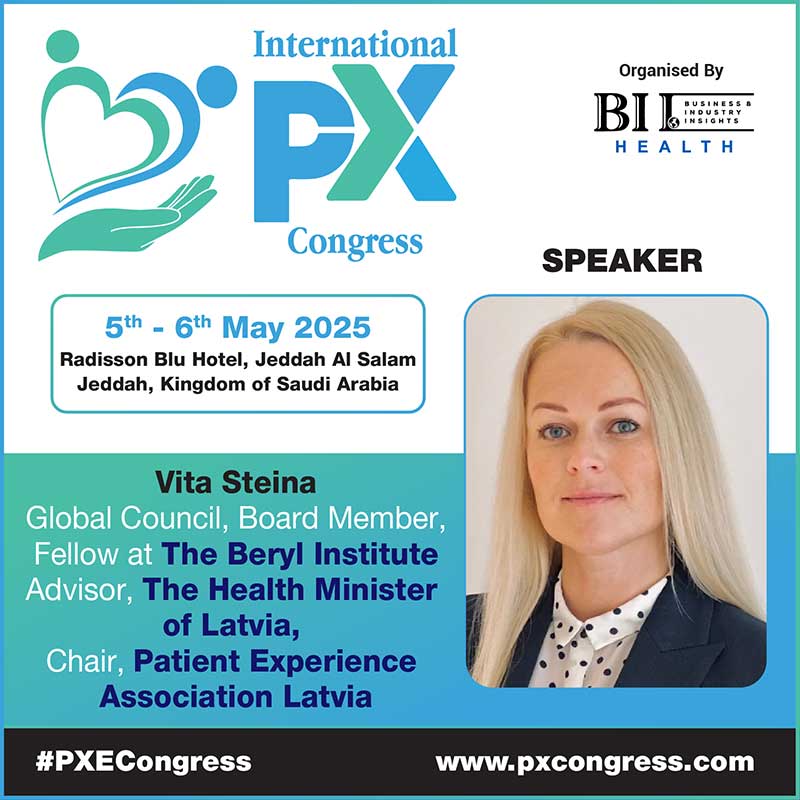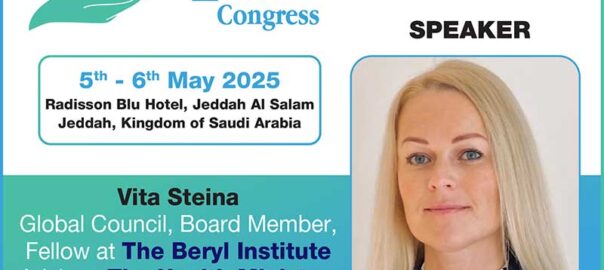Global Council, Board Member, Fellow at The Beryl Institute | Advisor to the Health Minister of Latvia | Chair at Patient Experience Association Latvia
1. In your opinion, how have consumer expectations in healthcare evolved in recent years, and what are the key factors driving this change?
I believe there is a difference between a patient and a customer. A customer always has choices and the ability to make decisions, whereas a patient is in a situation they did not choose themselves—feeling most vulnerable and completely dependent on healthcare. Therefore, it is crucial that healthcare teams recognize the patient’s condition and build collaboration based on support, compassion, and respect. In the past decade, partnership has increasingly become a part of this collaboration—by involving the patient in decision-making and empowering them through education. Partnership is a new concept that for many decades, even centuries, was not present in healthcare.
2. The theme of this year’s congress emphasizes “exceptional care.” How do you define exceptional patient experience, and what strategies can healthcare organizations adopt to achieve it?
High-quality healthcare consists of several components – clinical care, patient safety, and the human experience. Only by purposefully improving all three areas in synergy is it possible to achieve truly exceptional care results. There should be united vision and strategic goals for organization that are reached by specific actions plan, whereas all employees are engaged and see their input and value in organization.
3. What role do emerging technologies (such as AI, telemedicine, and digital health platforms) play in shaping the future of patient experience?
Technology, in itself, serves as a support tool for enabling fast information exchange across institutions, multidisciplinary teams, and by involving the patient as well. The faster we are able to share information effectively, the more timely we can provide the care that the patient needs. Access to and exchange of information is one of the key prerequisites for effective healthcare.
Emerging technologies offer the greatest value when the patient benefits—by achieving better clinical outcomes and when the system helps guide the patient to the right place at the right time. When the patient is the one trying to connect stakeholders within the system, valuable time is lost, and care becomes fragmented.
4. From your experience, what are the biggest challenges healthcare providers face in meeting and exceeding patient expectations, and how can these be addressed?
Behavioural and cultural change – this requires years and very active involvement from leadership. In resource-intensive areas, such as improving food quality or implementing digital systems, new infrastructure; it is challenging to introduce activities that enhance patient experience, which require staff involvement, such as nurse rounds and others, due to staff shortages.
5. Can you share a real-world example or best practice where a healthcare organization successfully transformed its patient experience?
At the Children’s University Hospital, significant improvements in reducing anxiety and fear were achieved over two years by introducing a new profession – child life specialists. They introduced children to expected medical procedures using toys. For example, for an MRI, a wooden model was created, where the child could place a toy and create sounds similar to those in an actual MRI procedure. This helped reduce anxiety not only for the young patient but also for the parents. This approach also helped reduce the need for sedation in younger patients.
6. What key message or insight would you like attendees to take away from your session at the Patient Experience Congress?
First and foremost, to be inspired and go home with the feeling in our hearts that together we can increase the good in the world, not only in healthcare. Caring for others is a fundamental principle of healthcare. Let us bring care for others into our daily lives as a life motto, so that our global society becomes a little better.



